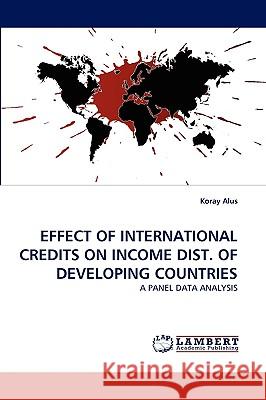Effect of International Credits on Income Dist. of Developing Countries » książka
Effect of International Credits on Income Dist. of Developing Countries
ISBN-13: 9783838371542 / Angielski / Miękka / 2010 / 184 str.
Today, international credits are among the key ingredients of the growth strategies pursued by the developing countries and the investigation of the relationship between international credits and income distribution is of special importance when the effectiveness of such flows are evaluated. In this study, we examine the effect of international credits, including those disbursed by the World Bank (WB) and the International Monetary Fund (IMF), on the income distribution in developing countries using data for years 1961-1996 for 63 countries, with maximum of 163 country-year observations and panel data estimation procedure. Our results briefly indicate that the WB loans do not appear to have reduced inequality in the countries in our sample.
Today, international credits are among the key ingredients of the growth strategies pursued by the developing countries and the investigation of the relationship between international credits and income distribution is of special importance when the effectiveness of such flows are evaluated. In this study, we examine the effect of international credits, including those disbursed by the World Bank (WB) and the International Monetary Fund (IMF), on the income distribution in developing countries using data for years 1961-1996 for 63 countries, with maximum of 163 country-year observations and panel data estimation procedure. Our results briefly indicate that the WB loans do not appear to have reduced inequality in the countries in our sample.











